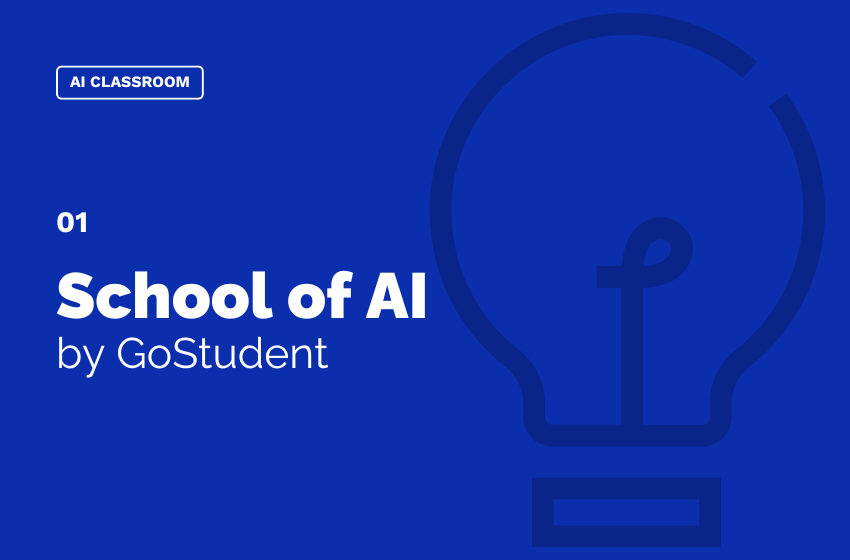Welcome to School of AI by GoStudent: Our monthly update exploring AI innovation and potential. This month, our CEO and co-founder Felix Ohswald explores how AI can empower teachers, and the impact this could have on learning outcomes for students.
Artificial intelligence is already enabling teachers to deliver experiences that would not have been possible even a few years ago. And new innovation aims to further empower students and educators alike. The latest enhancement to our AI-powered classroom, GoClass, came last month. Created instantly by AI, GoStudent Lesson Summaries are generated from the audio recording of a student’s tutoring lesson, providing useful information such as what was learned, what homework was set, the sentiment of the session, and what to focus on next.
This is a hugely exciting advancement. Not only do Lesson Summaries serve as a foundation stone for elevating the job done by teachers, they also turn learning into something where parents can be more involved.
Empowering teachers
For the teacher, Lesson Summaries provide them with the information they need to really deliver for students. When you teach something, how often do you actually get feedback? Did you talk too much? Did you ask the right questions? For a teacher, AI can provide practical suggestions on what could be done differently, and how to cater for a particular student’s needs. This empowers teachers to provide the best possible educational experiences. Teaching has long been a profession where there is little guidance, barring the curriculum. With AI feedback in real time, we can set the bar much higher for teaching than it has been in previous decades.
Not only can AI offer valuable feedback and insight, it can also be an incredible assistant that can cut the time teachers spend on admin and preparation. AI lesson plans, generated from a simple prompt, can cut lesson preparation from 20 minutes down to five. Going forward, teachers will also be able to use AI to make lessons more engaging, for example by generating a 10-minute quiz at the end of a lesson, created instantly from a transcript of that lesson.
Involving parents
When it comes to how Lesson Summaries add value for parents, it's simple. AI summaries help parents to be more involved in their child’s learning journey.
If a child is playing football, a parent will watch a match and understand how that child is playing. Parents don’t get to stand at the back of a classroom and see how their child and their teacher interact. In this way, teaching has always been a bit of a black box. AI can bridge the gap, and empower parents to understand their child’s progress and offer materials to help them support their child’s learning. In fact, we know from early data that parents and students revisit each lesson summary an average of 2.3 times - showing just how valuable these insights are.
Balancing AI and the human touch
The benefits of leveraging AI to enhance learning are clear, but it is also understandable that there is still some hesitancy around this new technology. AI is barely two years old, yet it is already transforming how we work, learn and tackle challenges.
As I see it, AI in education is a bit like an autonomous car: the best systems are the ones that collect data from the environment, from passengers, from streets and from other cars. When you build software for AI teaching, you build it on the real insights and knowledge of human teachers.
Put simply: humans will still be at the centre.
The way AI algorithms work, they only comprehend and work with existing data. They still lack the reasoning and inspiration that humans have. For teachers, the ones that thrive will be the ones that can be creative, that create new ideas, new approaches, and also think, “How can I use this technology to teach kids something?” Those skill sets will be key to thriving in an AI-powered learning world.
Of course, you need guardrails. If a child uses the internet, they can find inappropriate content. Similarly, with AI, we need to teach adults the skills they need to support their children, and to ensure that private data is closely guarded and children can use AI safely. But I am an optimist. I think AI will make the world a better place, and it is already elevating the learning process.
I think politicians, teachers and leaders in the education sector need to work hard in understanding AI and how it can be built into the teaching journey, and make sure they adapt and get educators the right training fast. The technology is here now to do real good for children - and lesson summaries are just the beginning.






